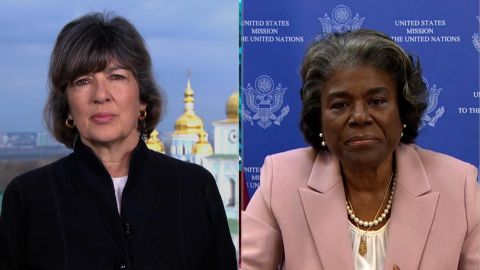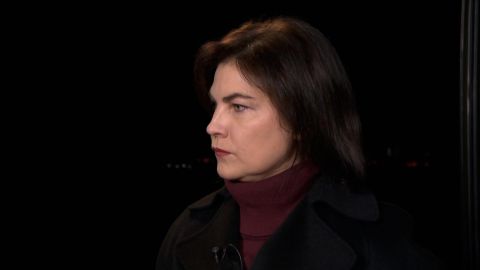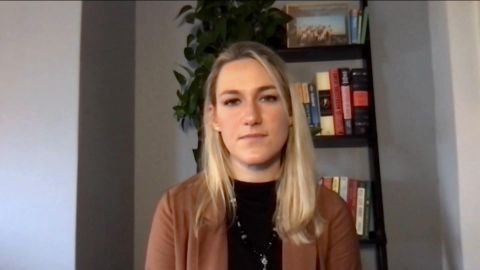Read Transcript EXPAND
CHRISTIANE AMANPOUR: What is your sort of initial response, reaction to what you’re seeing from afar, obviously, of the state of military play on the ground here?
LT. GEN. JOHN ALLEN (RET.), FORMER U.S. FORCES IN AFGHANISTAN COMMANDER: Well, first, Christiane, thank you for being at the front and for witnessing this yourself and reporting live from the locations that you are. It’s enormously important to the world to hear your perspective and to hear your reporting. Please be safe. I think we have seen the initial phase of this conflict pass. It was clear that Vladimir Putin intended, with a relatively light force, to quickly seize the capital, Kyiv. There were some subordinate avenues of attack into the country, Kharkiv, out of the Donbass and out of Crimea, but the main effort was going to be to seize the capital. I think he believed that the military forces in the Ukraine would be quickly swept aside, the population wouldn’t resist, the government would fall, and he would present the West with a fait accompli. Well, that didn’t happen. The Ukrainians resisted. The Ukrainian army was far more effective that he could have imagined. And so the main effort stalled short of achieving the principal campaign objective, which was the — ultimately, the destruction, if you will, of the Ukrainian government. Sol, now, that having not occurred, what you have seen and what you have heard out of the Russians is a redefinition of their campaign objectives, which is to, for all intents and purposes, shift their main effort into the east. And that’s problematic, obviously, because, if that campaign objective has as its basis the seizure and control of an arc of Ukrainian territory from roughly east of Kharkiv all the way around the south and southwest of Ukraine, it does several things. They may, in fact, push to and past Odessa as well. We could see Ukraine lose complete access to the Sea of Azov and the Black Sea. We could see Ukraine lose access to its sources of energy. And it’s a rich area for natural resources. And for the Russians ultimately to redefine their campaign objectives, to hold that crescent or that arc of Ukraine and begin to dig in on that, this means that, of course, to expel them from Ukraine, we will need to see the Ukrainian military mount the capacity for a counteroffensive.
AMANPOUR: OK. So…
ALLEN: Now, the Ukrainian military has defeated the Russians locally in counterattacks. The bigger issue, though, is, can they carry a counteroffensive to begin to push the Russians out of that arc of control that we think that they’re seeking to complete?
About This Episode EXPAND
Ambassador Linda Thomas-Greenfield explains why the U.S. hopes to suspend Russia from the UN Human Rights Council. Ukraine’s Prosecutor General Iryna Venediktova says she’s pursuing nearly 4,500 war crimes cases. Gen. John Allen (Ret.) offers his analysis of the war. Reporter Vera Bergengruen explains how Kyiv’s municipal digital team have adapted the city’s tech to save lives.
LEARN MORE



